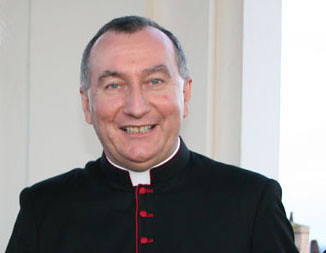9th September 2013
“I want diplomacy to be more efficient”

It is always good for a diplomat to be reminded that his job is to make a difference. The public image of diplomats too often remains that of the stereotypical cocktail party, and the focus on protocol for its own sake. I am glad to say that that is largely outdated. British ambassadors are appointed for their resilience, their strategic sense, their ability to react fast in tough circumstances, their analytical skills and their readiness to roll up their sleeves on behalf of the British public, British business, and British interests and values, not the deftness of their social small talk.
But the stereotype dies hard, which is why it was so good to read the interview that Archbishop Parolin, the newly appointed Holy See Secretariat of State, gave to the Venezuelan newspaper Diario Cattolico. In a few sentences he explained what Holy See diplomacy is for: “to strive for peace in the midst of the diversity that exists in this multipolar world”. He set it in context: “Vatican diplomacy is concerned with the common good of humanity”. He explained the modus operandi: “Bringing everyone’s differences together to make them strong points for the whole of humanity instead of causes for division”. And he assessed the tools at his disposal: “”an international diplomatic presence … our network of Nuncios”.
Above all, Mgr. Parolin stressed the importance of “efficient” diplomacy. Holy See diplomatic networks and contacts are formidable instruments if used effectively, instead of, as Mgr. Parolin noted, “letting them sit there”. With clear goals, set by Pope Francis’s global vision of peace, by recognising that contexts and objectives change, and making the best of limited tools, Holy See diplomacy can make a global difference. That’s one reason why we have an embassy to the Holy See. And we, too, shall strive to be “more efficient” when engaging with our hosts here in Rome, both where we agree and where we have differences. We welcome you back to Rome, Mgr. Parolin!